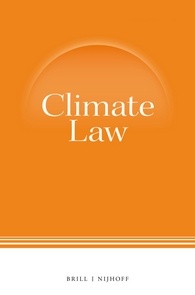An Economic Analysis of Liability and Compensation for Harm from Large-Scale Solar Climate Engineering Field Research
Solar climate engineering is under increasing consideration as a potential means to reduce climate change risks. Its field research may generate knowledge to reduce climate risks to humans and the environment and will, at a large-enough scale, pose its own risks, some of which will be of the transboundary kind. Liability or compensation for harm is frequently referenced as a possible component of international regulation of solar climate engineering but has been insufficiently developed. This article offers an economic analysis of the possible interrelated roles of rules, liability, and compensation in the future international regulation of large-scale field research in solar climate engineering. Notably, the benefits, risks, and incentives of climate-engineering research are unlike typical high-risk activities. The analysis proposes a hypothetical international agreement that links general and procedural rules for research, an international compensation fund, and limited, indirect state liability with a duty-of-care defence.
Reprinted in Environmental Law and Economics, Klaus Mathis (Ed.), Economic Analysis of Law in European Legal Scholarship series (Springer, 2017).

